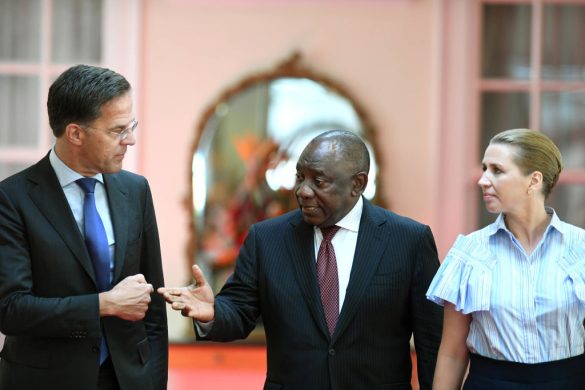Etiopien har været en donordarling, når der skulle fordeles humanitære hjælp mod sult og nød; faktisk siden massehungeren i 1984-85, der kostede en million døde – hvordan er det så i dag?
Etiopien har været en donordarling, når der skulle fordeles humanitære hjælp mod sult og nød; faktisk lige siden massehungeren i 1984-85, der kostede en million døde – hvordan er det så idag? Hvad opnåede Meles?
JOHANNESBURG, 22 August 2012 (IRIN): During his two decades in power, Meles Zenawi committed himself to ending Ethiopia’s dependence on food aid.
With his death, IRIN looks at his legacy in promoting food self-sufficency and fighting rural poverty in a country historically associated with drought and environmental stress.
Food security
Meles’ regime is credited with having pioneered schemes (tiltag) designed to protect the poor such as the Productive Safety Net Programme (PSNP – see below), a Social Cash Transfer Pilot Programme and a commodity exchange .
Between 1998 and 2012 the average number of Ethiopians in need of food assistance fluctuated between 3 million and 14 million.
Under Meles, Ethiopia’s economy, in which agriculture generates 45 percent of GDP (bruttonationalproduktet) and 90 percent of exports, became one of the fastest growing in the world.
But the African Horn country spends only about 17 percent of its public money on agriculture, which employs 85 percent of the population.
Ethiopia’s close partnership with key western nations helped ensure it received considerable external funding – it was the fourth largest recipient of official humanitarian aid in 2010 and in 2009 it received the equivalent of 14 percent of its gross national income (GNI) as aid (ODA).
Among the top 10 recipients (modtagere)
Ethiopia has consistently featured among the top 10 recipients of humanitarian aid since 2000, according to data compiled by the UK-based NGO, Development Initiatives.
“There are other African countries who have comprehensive and sound plans to make their people food secure in the long-term like Ghana and Saheilian countries like Niger but unfortunately they have not attracted the same amount of funding as Ethiopia has,” said Frederic Mousseau.
He is a food security expert and policy director at the US-based Oakland Institute, a think-tank.
Another food security analyst, who sought anonymity, cautioned that data pointing to the success of schemes such as the PSNP need to take into account “the absolute control over assessments [food security-related], information about the number of people in need, nutritional status (ernæringsmæssig tilstand) etc”.
“The narrative (officielle version) is that the corner as far as food security is concerned has been turned, but that is a narrative carefully controlled by the government. Time will tell.”
The 2000 food crisis
Læs videre på
http://www.irinnews.org/Report/96154/ETHIOPIA-Food-security-and-the-Meles-legacy
Se også telegrammet
http://www.u-landsnyt.dk/nyhed/22-08-12/etiopiens-leder-meles-zenawi-er-d-d














